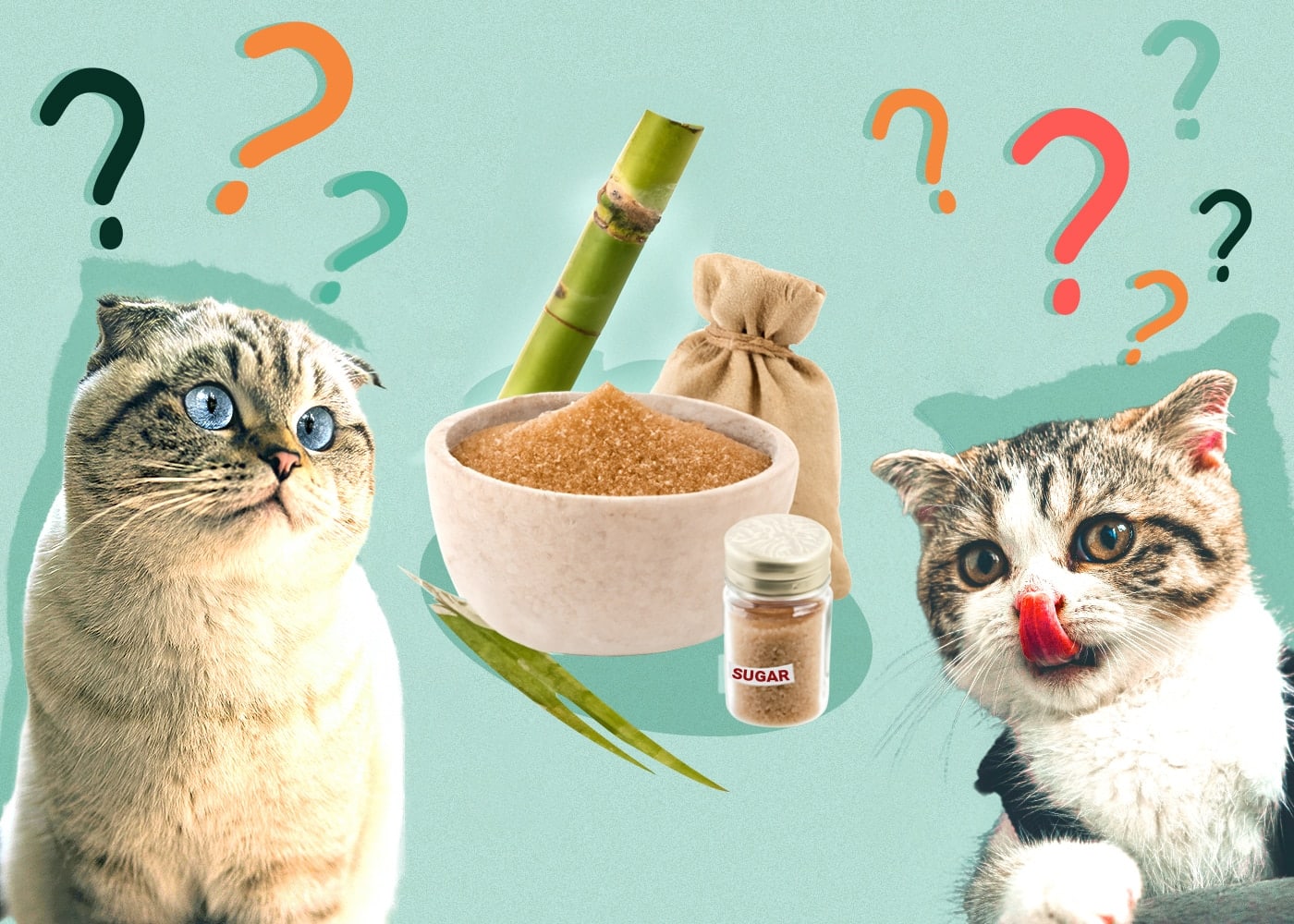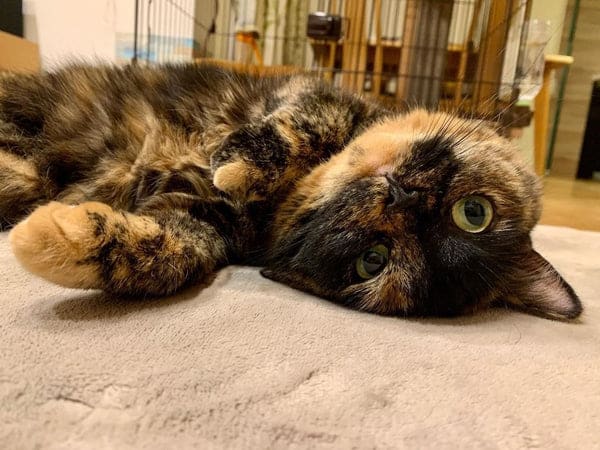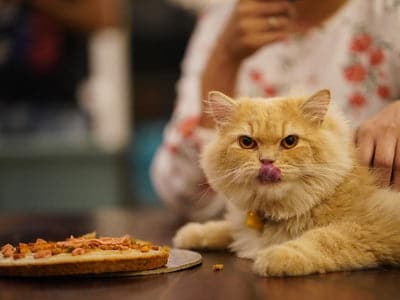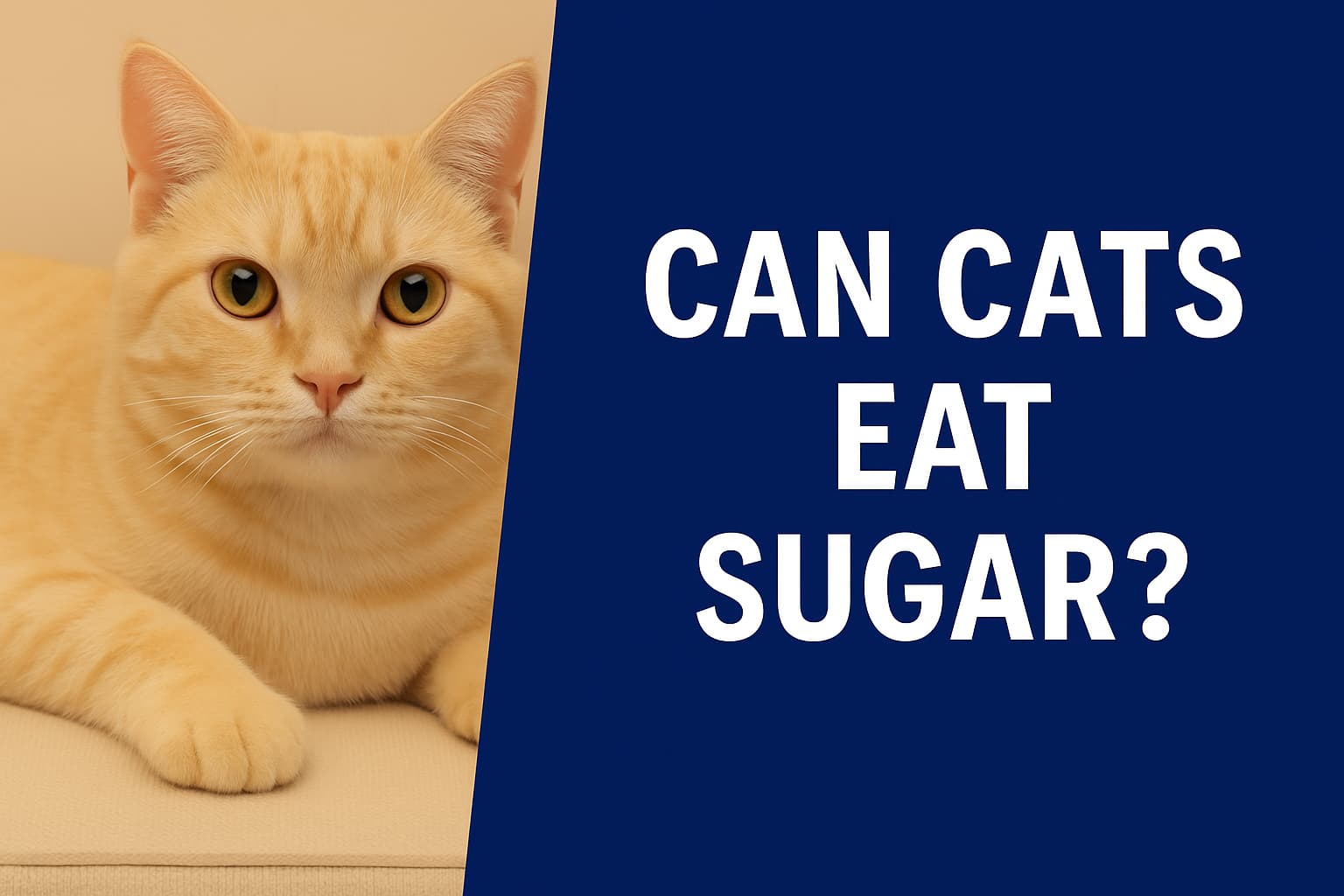Cats should not have sugar. It can harm their health.
Cats process food differently than humans. Their bodies struggle to process sugar effectively. While the occasional lick of something sugary might not cause immediate harm, regular consumption can lead to serious health issues. Cats can suffer from obesity, diabetes, and dental problems due to sugar.
Understanding a cat’s dietary needs is crucial for their well-being. Unlike humans, cats are obligate carnivores. This means their primary diet should consist of meat. Their bodies handle proteins and fats well but struggle with carbohydrates, such as sugar. Pet owners often wonder if treats or snacks with sugar are safe. The simple answer is no. Keeping sugar away from your cat helps maintain their health. This ensures they lead a long, happy life. Knowing what foods to avoid is key to responsible pet care.

Cats And Sugar
Cats are natural carnivores. They mainly eat meat. Their diet in the wild is rich in protein. They don’t seek sweet foods. Cats lack taste buds for Sugar. So, sweet things don’t appeal to them. Their bodies don’t need Sugar.
Many human foods have Sugar. Cakes, candies, and chocolates have a lot to offer. Cats should not eat these. Sugar can cause cats to become sick. It may cause stomach problems or tooth decay. Always keep sugary foods out of reach of cats. They don’t know it’s bad for them.
Impact On Health
Cats can’t digest Sugar well. Their bodies aren’t built for it. Sugar can upset their stomach. It might cause vomiting or diarrhea. Cats need protein, not Sugar. High-sugar foods are bad for them. A natural diet is best for cats. Too much Sugar can lead to weight gain. Obesity is a big problem for cats. Healthy cats have better lives.
Sugar can harm cats’ teeth. It sticks to their teeth and gums. This leads to plaque build-up. Plaque can cause cavities and gum disease. Healthy teeth are essential for cats. They need strong teeth to eat and play. Cats with dental issues may feel pain. Avoiding Sugar helps keep their teeth strong. Regular vet check-ups are essential. Brush their teeth if possible.
Sugar Alternatives
Cats should not eat regular Sugar. Safe alternatives can be used instead. Honey is not safe for cats. But some fruits can be good. Apples or blueberries are fine in small amounts. Always cut fruits into tiny pieces. Monitor your cat after they try new foods. Check for any signs of discomfort. Always consult a vet if unsure.
Xylitol is very dangerous for cats. It can be found in sugar-free items. Even a small amount can harm them. Chocolate is another harmful treat. It contains theobromine, which is toxic. Avoid giving your cat raisins or grapes. These can cause kidney problems. Always keep unhealthy foods out of reach of cats. Their health depends on it.

Signs Of Sugar Consumption
Cats may act strange after eating sugar. They might become more hyperactive than usual. Some cats may become anxious or appear restless. Sugar can make them agitated. They might not want to sleep or relax. You may notice them pacing around the house. Some cats will even start meowing more than usual. These are signs sugar is affecting their behavior.
Watch for changes in your cat’s body. Sugar can make cats feel sick. They might have an upset stomach. Some cats will vomit or have diarrhea. Their energy might drop suddenly. This can make them seem tired or lethargic. Cats may drink more water than usual. This could be a sign of sugar affecting their health.
Preventive Measures
Cats should avoid sugar to maintain their health. Sugar can lead to obesity and diabetes in felines. Offering sugar-free treats and monitoring their diet helps keep them safe.
Diet Management
Cats should eat food without added sugar. Sugar is not suitable for them. It can cause health problems. Feed them a balanced diet. This helps them stay healthy. Check food labels for hidden sugar. Choose cat-friendly snacks. These snacks are safe for them.
Environmental Control
Keep sugary foods out of reach. Cats are curious. They might eat things they shouldn’t. Store candy and sweet treats in closed cabinets to prevent spoilage and maintain freshness. This keeps them safe. Clean up spills quickly. Cats might lick sticky spots. Use pet-safe cleaning products. These are safer for them.

Veterinary Advice
Cats should not consume excessive amounts of sugar. It can harm their health. Vets are the best people to ask about cat diets. They know what is safe for your cat. During a consultation, vets can give advice. They can explain the risks of sugar for cats. Always ask a vet before changing your cat’s diet. Your cat’s health is essential.
Vets suggest cats eat exceptional cat food. This food has the proper nutrients. Sugar is not one of them. Cats do not need sugar. Sugar can make cats sick. It can cause teeth problems and weight gain. Always read food labels. Avoid feeding your cat foods with added sugar. Keep your cat healthy and happy.
Myths And Facts
Many people believe cats can safely consume sugar. This is not true. Cats cannot taste sweetness. They don’t need sugar in their diet. Sugar can cause health problems in cats. Obesity is one of them. Diabetes can also occur. A cat’s body is different from a human’s. They process food differently.
Some believe sugar gives cats energy. This is a myth. Cats get energy from protein. They need meat to stay healthy. Sugar is not part of their natural diet. It does not give them any benefits. Feeding cats sugar can be harmful.
Studies show that cats lack the gene that enables them to taste sweetness. This means they cannot enjoy sugary treats. Their bodies do not handle sugar well. Research suggests that excessive sugar intake can harm a cat’s liver. It may also upset their stomach. Cats thrive on a diet high in protein. Carbohydrates, like sugar, are not necessary for them.
Veterinarians advise against giving cats sugar. It can lead to serious health problems. Always choose cat-friendly treats. These are safe and healthy. A balanced diet keeps cats strong and happy.
Frequently Asked Questions
What Happens If Cats Eat Sugar?
Cats eating sugar can lead to digestive issues and obesity. Sugar isn’t nutritious for cats. It might cause weight gain and dental problems. Always provide a balanced diet to keep your cat healthy and well-nourished. Avoid sugary treats to ensure their well-being.
How Much Sugar Is Safe For Cats?
Cats should consume minimal sugar, ideally none. Sugar isn’t necessary in their diet and can cause health issues. It’s best to avoid giving sugary treats to maintain their health. Always consult a veterinarian for dietary advice specific to your cat’s needs.
What Happens If A Cat Has Sugar?
Cats consuming sugar can lead to digestive issues, obesity, and diabetes. They can’t properly digest sugar. It’s healthier to avoid giving cats sugary foods to prevent health problems. Always offer cat-friendly treats for optimal well-being.
Can Cats Have A Little Brown Sugar?
Cats should not have brown sugar. It offers no nutritional benefits and can harm their health. Excessive sugar may lead to obesity or diabetes in cats. Always prioritize a diet specifically designed for feline needs. Consult your veterinarian for safe treatment options.
Conclusion
Cats and sugar don’t mix well. Their bodies can’t handle sugar like ours. Excessive sugar consumption can lead to various health issues. Obesity, diabetes, and dental problems are common risks. It’s best to avoid giving them sugary treats. Stick to cat-friendly snacks for their safety.
Always consult a vet for diet advice. They know what’s best for your cat’s health. Keep your feline friend happy with proper nutrition. A healthy cat is a happy cat. Remember, their well-being is in your hands. Choose wisely for their diet.
Your cat deserves the best care possible.
🩺 Reviewed by Dr. Audrey Cook, BVM&S, DACVIM-SAIM, DECVIM-CA
Professor of Small Animal Internal Medicine
Texas A&M University, College of Veterinary Medicine
Dr. Audrey Cook is a globally recognized expert in veterinary endocrinology. With certifications in both U.S. and European veterinary medicine, she specializes in feline diabetes, insulin therapies, and chronic endocrine disorders. Her work influences best practices in clinics worldwide.






